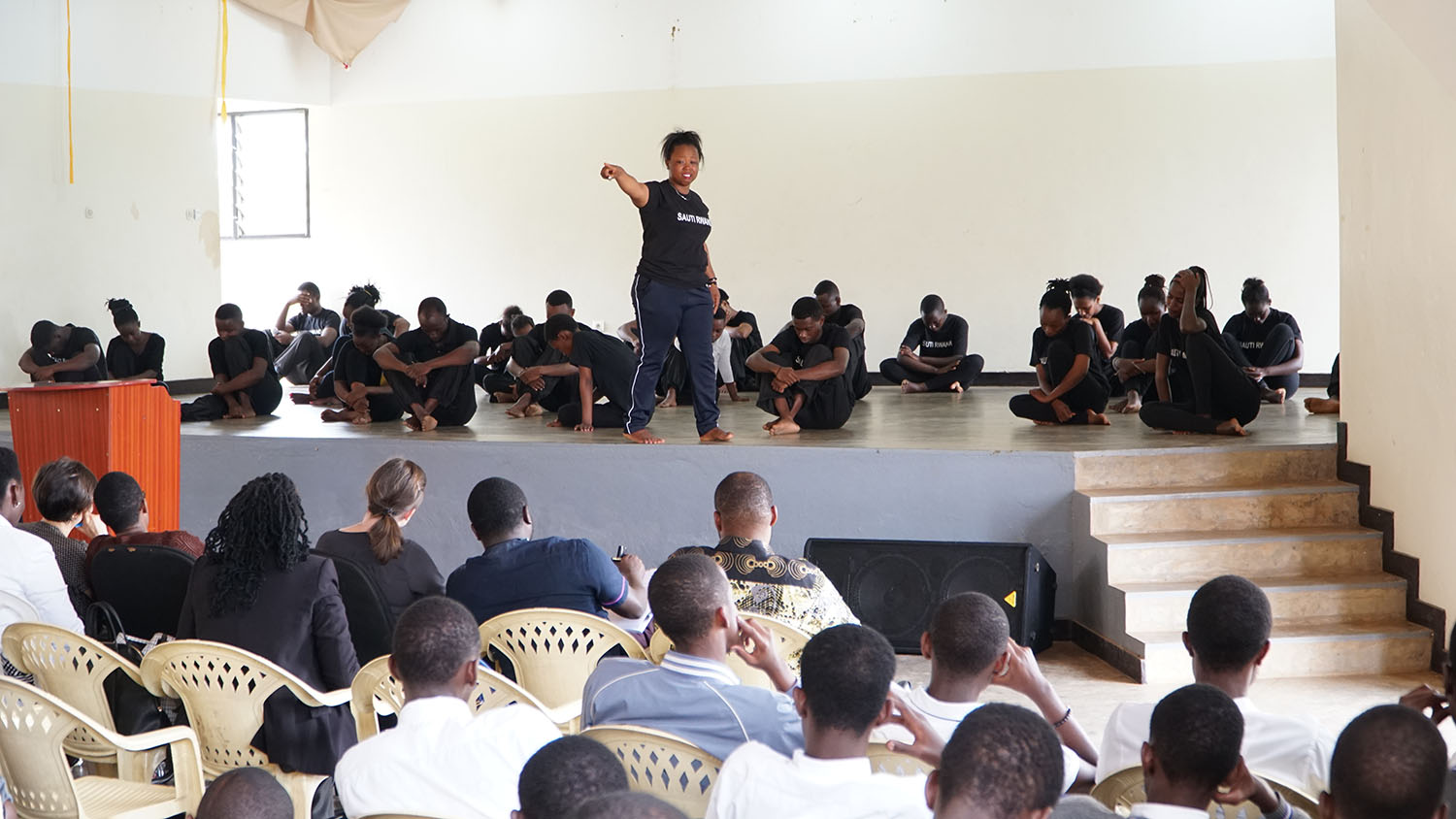“I used to ask myself if I had any reason to live, life didn’t make any sense to me, I lived a somber and tearful life because of the wounds I carried with me each day, but now I have a family, people I can share my pain with and they do the same, I am a better person and I have a purpose and hope in life.” This was one of the rhythmical statements that was said during one of the performances of world mission club, a peace club that is affiliated to Never Again Rwanda. One of the performers said as she noted that the journey has been long, and although they can’t say they are totally healed, they came from a darker past of intermittent traumatic situations to a better emotional stability, courtesy of the healing program.
World Mission club is one of the groups of youths that use expressive approaches like art, poems, theatre, music, writing among others in an attempt to heal the wounds. Their performances portray a number of different wounds and personal stories that were as a result of the 1994 Genocide against the Tutsis. However, the performances also show a message of hope from these young people who have gotten an ear to listen to their pain and a family to call their own. The journey is still long for them but they appreciate what they have achieved so far.
In March, the world mission club performed in front of a Swedish delegation, a piece that was not only thrilling but also an appreciation on the efforts of healing in the communities that Never Again Rwanda is operating in. Participants showcased a theatre piece that incorporated music and narration as a way of sharing their individual stories and to allow the greater community around them as a whole to understand trauma and healing through drama.
The young people in the club are using their personal wounds to champion for healing and peace building. They said that all the performances are hinged on what they have gone through, what they have witnessed through their relatives and how they have been able to talk about it and start their journey to healing.
In her closing remarks, Hanna Doller the second Secretary at the Embassy of Sweden in Kigali lauded the World Mission Space for Peace club, for their emotive and powerful performance. She commended them and encouraged them to continue being a great representation of the journey to healing in their expressive arts, drama and music pieces. “It’s when you start talking about what happened that you start reconciling with it and moving ahead and eventually fostering peace and societal healing” she said. She added that youth are an important factor in building lasting peace.
Youth are urged to use what they have, like talents and various skills to express about their pain, but also build to lasting peace and healing.


